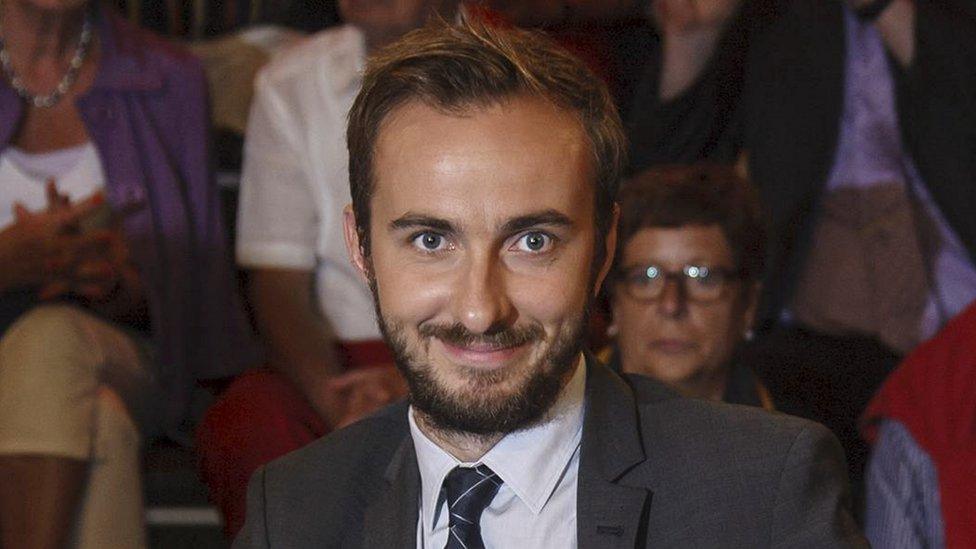Have Turkey and the EU struck a dirty deal?
- Published
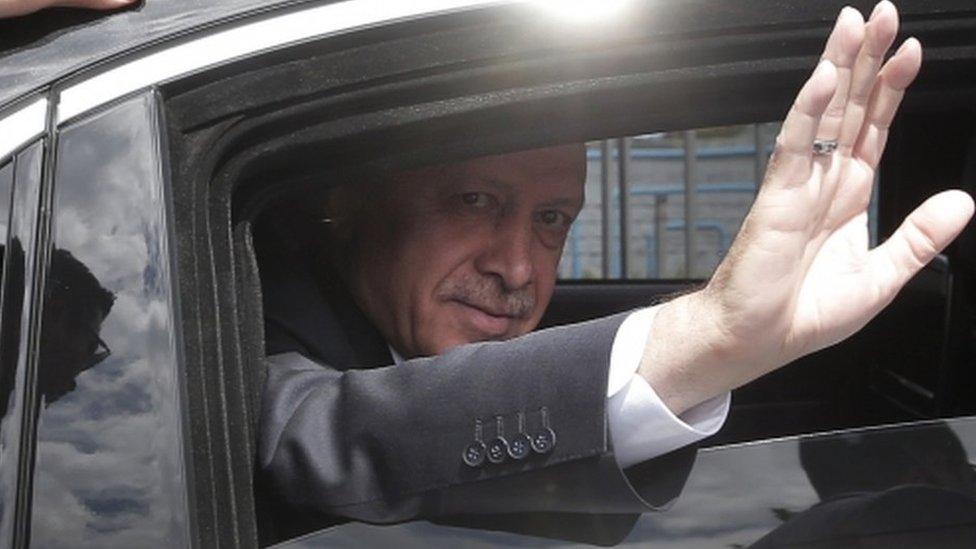
President Erdogan is thought to be driving a hard bargain with the EU
In European capitals, the awkward questions are becoming more frequent.
How steep is the price for winning Turkey's cooperation over stemming the flow of migrants?
Is the EU essentially being blackmailed?
Are Europe's leaders trading their values in return for reducing migrant numbers?
Will the EU-Turkish deal hold or will it fail, bringing thousands of migrants back to the shores of the Aegean?
Those doubts deepened over the weekend.
Recep Tayyip Erdogan sent an uncompromising message to Europe's leaders: "We are going our way, and you can go yours."
Europe's leaders have placed a large bet on the Turkish president helping them manage their refugee crisis.
Turkey agreed to take back migrants from Greece in exchange for giving Turkish citizens the right to travel to the Schengen area of the EU and remain there for up to 90 days without a visa.
The EU attached 72 conditions, including an insistence Turkey's broad anti-terror legislation be narrowed to bring it closer to European standards.

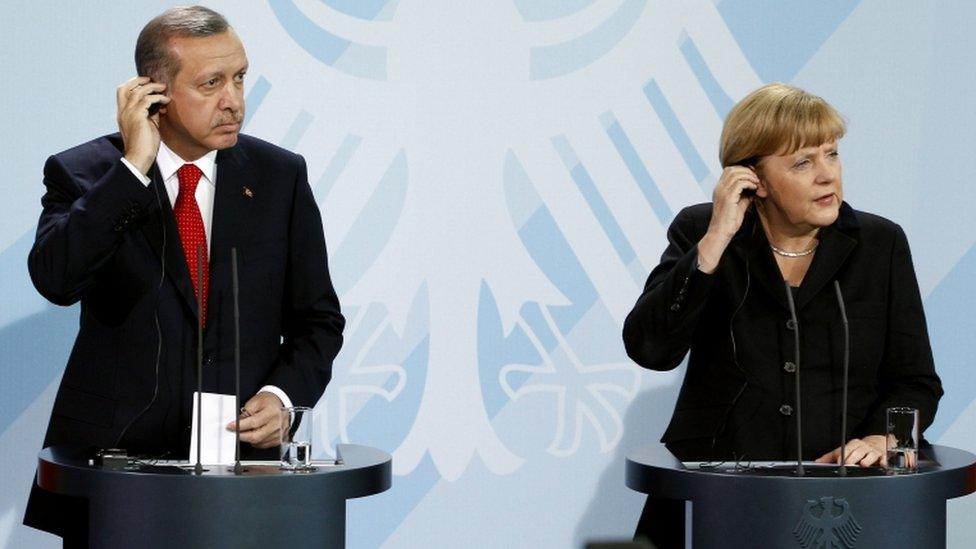
Key points of Turkey-EU agreement
Returns: All "irregular migrants" crossing from Turkey into Greece from 20 March will be sent back. Each arrival will be individually assessed by the Greek authorities
One-for-one: For each Syrian returned to Turkey, a Syrian migrant will be resettled in the EU. Priority will be given to those who have not tried to illegally enter the EU, and the number is capped at 72,000
Visa restrictions: Turkish nationals should have access to the Schengen passport-free zone by June. This will not apply to non-Schengen countries such as Britain. Turkey must meet certain criteria
Financial aid: The EU is to speed up the allocation of €3bn (£2.3bn) in aid to Turkey to help migrants
Turkey EU membership: Both sides agreed to "re-energise" Turkey's bid to join the European bloc, with talks due by July


Five benchmarks still to be met by Turkey:
Corruption: Turkey must pass measures to prevent corruption, in line with EU recommendations
Data protection: It must align national legislation on personal data protection with EU standards
Europol: An agreement is to be concluded with the continent's law enforcement agency
Judicial cooperation: It must work with all EU members on criminal matters
Legislation on terrorism: Turkey is also required to bring its terror laws in line with European standards

Initially, Brussels was robust, insisting the Turks must fulfil all the conditions without exceptions.
The President of the European Commission, Jean-Claude Juncker, said: "The criteria will not be watered down."
But, when it came to it, there was a fudge.
The commission believed the conditions had been "basically achieved".
But there were loud rumblings from the European Parliament.
Guy Verhofstadt, a senior MEP, insisted again, external there would "only be a deal if Turkey changes the anti-terror laws which are being used to silence journalists".
It did not help the atmosphere when last Friday two prominent journalists were jailed and further pressure applied to an opposition newspaper and news agency.
And this weekend, President Erdogan, knowing the European Commission and Europe's leaders had essentially approved the deal, took a very hard line with the EU.
He said: "The EU says, 'You will change the anti-terror law for visas.'
"Pardon me, but we are going our way, and you can go yours."
The message was clear: Europe needs Turkey's help more than the other way around.
Appeasement
The deal was negotiated by the Turkish Prime Minister, Ahmet Davutoglu, but he is now stepping down after friction with Mr Erdogan over the president's plan to introduce an autocratic form of presidential government to the country.
That has further unnerved critics of the deal.
Mr Davutoglu had personally negotiated the agreement with German Chancellor Angela Merkel.
She had said it would strengthen the pro-European faction in Ankara.
But it has not turned out that way.
President Erdogan was incensed by the decision to allow supporters of the Kurdistan Workers Party (the outlawed PKK) to set up a protest site outside the European Parliament.
But critics of the deal accuse Mrs Merkel, the European Commission and Europe's leaders of appeasement.
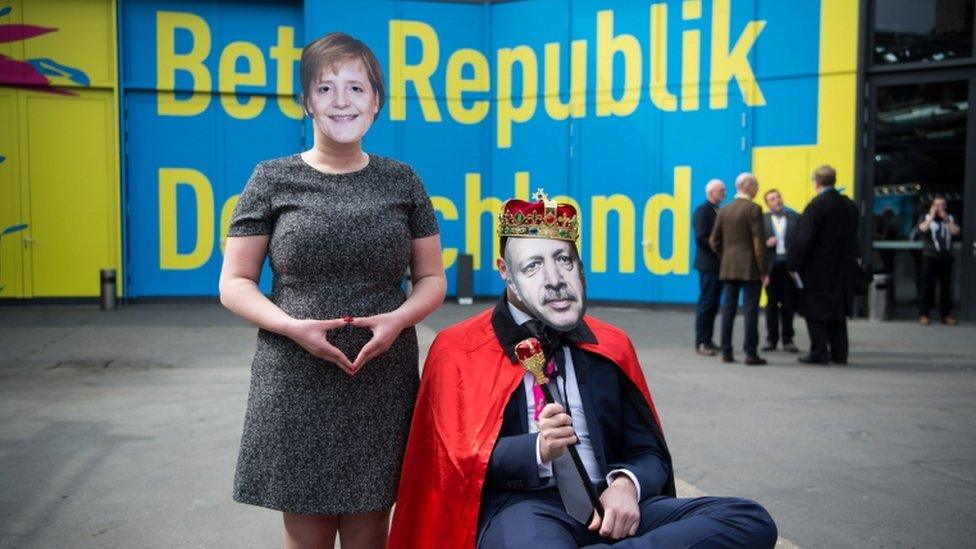
Mrs Merkel has been accused of failing to take a tough line with Turkey
They say they are so desperate to reduce the numbers of migrants and refugees heading for Europe that they are prepared to overlook what many see as a march towards authoritarianism in Turkey.
The German chancellor is under pressure at home from the rise of the anti-Islamic party Alternative fur Deutschland (AfD).
She is also aware of the need to give the appearance the migrant crisis has been managed - especially in the weeks running up to the referendum in the UK.
In Germany, there are concerns about the consequences of the visa agreement.
There is a debate as to whether a large number of Kurds will use the visa liberalisation programme to apply for asylum in Germany, or to disappear into the underground economy.
So, the next few weeks will be crucial.
The weather in the Aegean makes the crossings less dangerous.
But the Turkish authorities are patrolling the sea much more aggressively, and there are reports conditions - including payments - have improved in some of the Syrian refugee camps, persuading some not to travel.
But Ankara has made it clear it can become unhelpful at any time.
And President Erdogan has also laid out his ambition - that he looks to the visa exemptions as accelerating the process towards EU membership.
The Turkish paper Hurriyet said Europe had to decide between its principles and its interests.
Over the next few weeks, Brussels will have to choose: back a deal with an increasingly authoritarian leader or risk the migrant crisis returning to the shores of Greece and threatening the survival of the Schengen agreement and free movement.
- Published6 May 2016
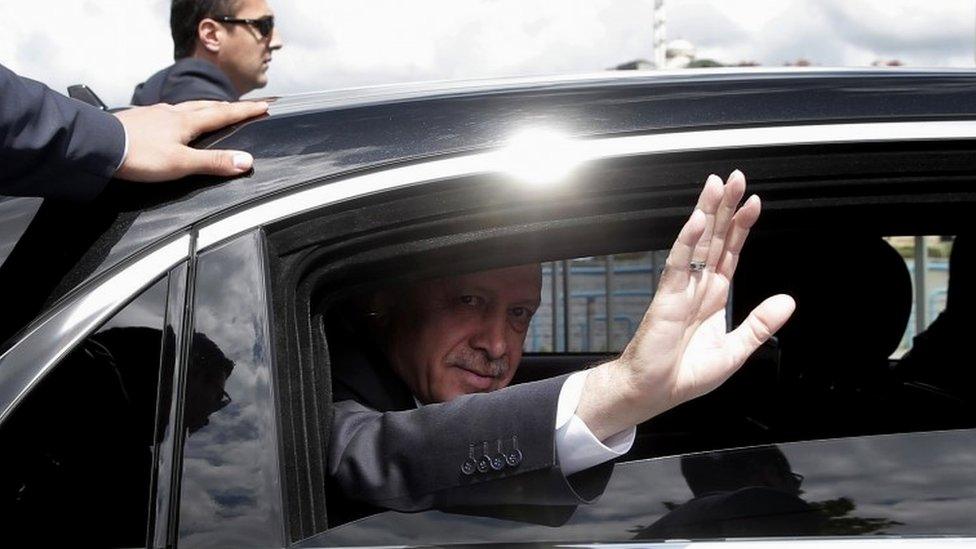
- Published5 May 2016
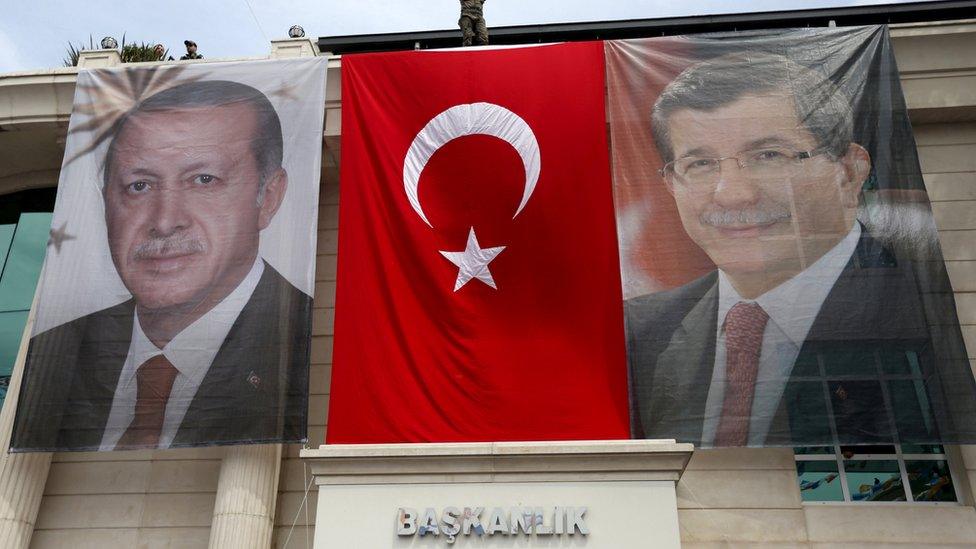
- Published15 April 2016
